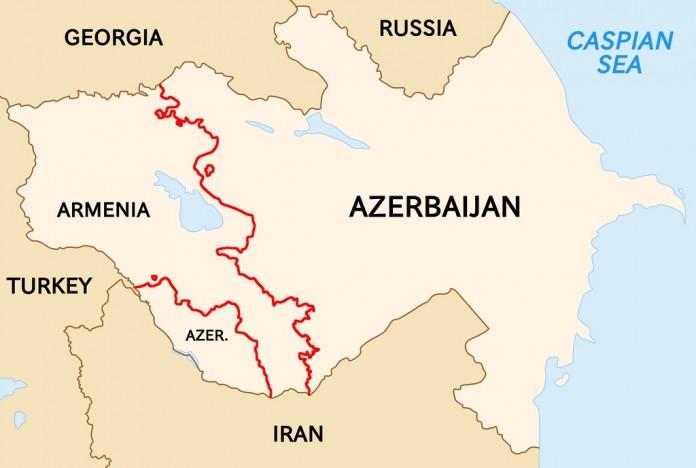
Armenia Getting Closer to Iran
In recent days, the US has announced more than 500 new sanctions against Russia over its illegal invasion of the Ukraine and the death of Russian opposition leader Alexei Navalny, one week after he suddenly passed away in prison. The American sanctions include measures against Russia’s main card payment system, financial and military institutions and officials involved in Navalny’s imprisonment. The EU has also announced new sanctions on Russia’s access to military technology.
“For more than a decade the Kremlin persecuted, imprisoned, and tormented Navalny,” said Tirana Hassan, executive director at Human Rights Watch. “He should never have been in prison, in the first place. The Russian authorities bear full responsibility for what has happened to Navalny, starting with his first politically motivated arrest.” Navalny has been imprisoned since 2021. He survived a 2020 poisoning attempt, which many blamed on the Kremlin. He was an outspoken critic of both the Ukraine war and repression within Russia.
French President Emmanuel Macron said recently: “We are convinced that the defeat of Russia is indispensable to the security and stability of Europe.” He described Russia as the “sole aggressor” in the Ukraine conflict. US President Joe Biden and other Western leaders hold a similar position related to Russia. In light of this, the Armenians have decided that it is crucial for their country to move away from dependency on Russia. However, while their desire to get closer to America and France is not problematic from an Israeli perspective, their desire to get closer to the mullahs in Tehran certainly is.
Armenian Security Council secretary Armen Grigoryan told Armenian Public Television that trade between Armenia and Iran is booming. Where the countries traded $350 million worth of goods in 2021, the expectation is that this figure will rise to $1 billion this year. “Economic relations between the two countries are important from the standpoint of security,” he said.
Armenian Minister of Territorial Administration and Infrastructures Gnel Sanosyan says that Armenia and Iran could soon increase the volume of gas for an electricity swap deal. The gas for electricity agreement between Armenia and Iran has been extended until 2030 and enables Armenia to import greater volumes of natural gas and export more electricity. “I believe that in terms of the legal documentation we have implemented the important phase and soon, as required, according to needs and also infrastructure, we will be able to use that opportunity. New power transmission lines are under construction in order to be able to export greater volumes of electricity to Iran. Both sides have the desire to increase the volume and the changes will be visible in various stages,” Sanosyan told Armenpress.
The minister also spoke about the involvement of Iranian companies in construction projects in Armenia. He said that the bigger the project the harder it is to find contractors. Iran, having highly developed construction firms and being Armenia’s neighbor, can easily carry out construction projects in Armenia, and has done so in some cases.“ I think this is a mutually beneficial process. We need construction companies and Iran has these companies. Geographically, we are neighbors and it is easy to have them carry out this work,” Sanosyan said. The minister confirmed that Iran is interested in the reservoir construction projects in Armenia.
To expedite other human and commercial exchanges, a vital cross-border highway running through Armenia’s southern Syunik region is undergoing a major upgrade. Last October, the Armenian government awarded a $215 million contract to two Iranian companies – Abad Rahan Pars Iranian International Group and Tounel Sad Ariana – to do the work. Once finished, the road will enable motorists to drive from Agarak, on the Iranian border and continue some 32 kilometers northward across mountainous terrain over 17 bridges and through two tunnels.
As Israel wages war against Iranian proxies such as Hamas, Hezbollah and the Houthis in Yemen who are wantonly attacking Israeli cities and towns, not to mention waging terror attacks and committing grave crimes against humanity against Israeli citizens, it is a cause for great concern that Armenia would decide to lean on Iran instead of Russia in order to strengthen itself. Due to the Iranian influence, the Jews of Armenia are suffering gravely since the October 7 terror attack. In fact, a recent report by Israel’s Diaspora Affairs Ministry hinted that the dramatic rise of anti-Semitism in Armenia may be “influenced by external factors,” referring directly to the growing relationship between Yerevan and Tehran.
Source » msn





